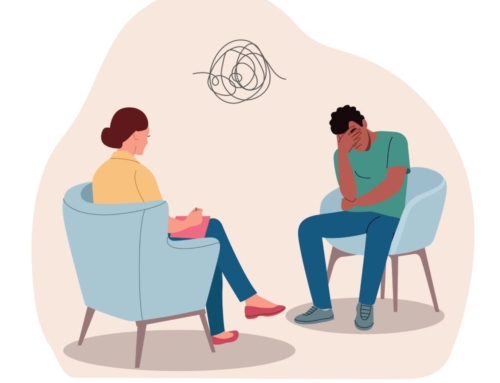Trauma compounds: Why Representative Alexandra Ocasio-Cortez was right

Trauma compounds. This is fact despite how many people appear determined to mock or shame those who advocate for greater awareness.
Trauma is not something that one just gets over because time has passed. It seeps into every pore of one’s being, waiting on edge to rise up in reaction to any potential threat or reminder. Our bodies are meant for survival first and foremost. If we’ve been threatened or feared for our life, whether physically or psychologically, our body will always remember and be prepared the next time.
When trauma survivors speak up about what has happened to them, they so often are immediately dismissed. When they describe seemingly disconnected emotions or experiences in the present as related to past events, they are told they are being dramatic. When the hurt rises up and words fail them, they are labeled hysterical, psychotic, or mentally ill.
So was the case this past week when a representative of Congress bravely spoke of how her recent trauma (the insurrection at the Capitol) compounded with a past experience of sexual assault. Rep. Ocasio-Cortez not only disclosed her past trauma live in front of hundreds of thousands of strangers, she spoke from the heart about the terror of her recent experience. And, she acknowledged the plethora of traumatic experiences that can result in feelings just like hers.
Childhood neglect, verbal abuse, physical and sexual abuse, and other early experiences can and do leave one vulnerable both to future trauma and to more intense reactions to such trauma. The thing is, very few people talk about these things in public. It’s hard enough to talk about with one’s therapist!
The reaction to Rep. Ocasio-Cortez’s story was a very public and prime example of why folks stay silent. Rather than being met with compassion, empathy, and understanding, Twitter and other outlets were awash in accusations of her lying (the disgusting hashtag #AOCSmollett is still trending as this is written 5 days later). It was suggested that she was manipulating people for political gain by “weaponizing” her trauma.
This is often how people get labeled with terms like “hysteria” or “borderline personality disorder.” And, here was no exception.
In all of this, what gets lost is the fact that what Rep. Ocasio-Cortez experienced and spoke about is textbook. When someone has been hurt beyond his or her ability to cope, when a sense of safety has been lost, the impact is deep. A certain narrative begins to color future interactions and experiences. Fear underlies so many aspects of life. Further overwhelming experiences do not exist in a separate vacuum.
Trauma compounds. Back in the late 90s, a massive study was conducted at Kaiser Permanente wherein confidential surveys were conducted with over 17,000 people about their childhood and their current health and well-being.
This is the most definitive and expansive set of data showing just how much compounded trauma, especially during childhood, affects a person. For instance, this study has shown that the more traumatic experiences one has had, the risk rises exponentially for outcomes such as alcoholism, heart disease, autoimmune diseases, depression, domestic violence, liver disease, smoking, drug abuse, psychosis, and suicide.
It is not hysterical or manipulative or dramatic or weaponizing or dishonest to speak of how detrimental trauma, and especially repeated trauma can be for a person.
One of the worst long-term effects of trauma is not the experience itself, but the shame and silence that society imposes. It is not a victim’s duty to make others comfortable. Or to pretend that their experiences did not hurt. It certainly is not a trauma survivor’s responsibility to explain why they hurt the way they do.
The shame should only lie with the perpetrator (if there is one), not the victim. Survivor’s need to be heard and valued for what they have to say. If it’s hard to hear or painful to witness, imagine what the person who went through the experience must be feeling. Defending against that pain by dismissing or ridiculing someone who’s already in anguish is, well, let’s just say it’s not ok.
It takes bravery and compassion for others who are in pain to publicly come out and speak the way Rep. Ocasio-Cortez did. She opened herself up in an authentic and vulnerable way to describe how recent events terrorized members of Congress and to raise awareness of how trauma compounds. She did so only to be kicked and spit upon (metaphorically) while she was down. She did not deserve this any more than anyone ever deserves it.
If you or a loved one are hurting or have experienced trauma, find someone who is willing to listen. And, give as little power as possible to those who are incapable of doing so. You deserve to be heard.









